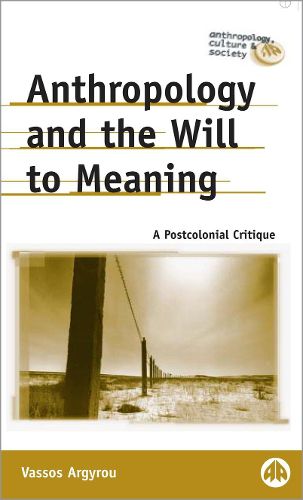Readings Newsletter
Become a Readings Member to make your shopping experience even easier.
Sign in or sign up for free!
You’re not far away from qualifying for FREE standard shipping within Australia
You’ve qualified for FREE standard shipping within Australia
The cart is loading…






Anthropology, the study of societies and cultures different to our own, is based on the humanist assumption that difference does not mean otherness and inferiority. In this book, Vassos Argyrou puts forward a powerful critique of both modern and postmodern anthropology that reveals the self-centred logic of anthropological humanism, offering the controversial conclusion that the anthropological project is forever doomed to failure. At the heart of the book is the idea that anthropologists are driven to produce knowledge not by a desire for power, as it is often assumed, but by a desire for meaning. Interpretation of other societies and cultures allows them to construct an image of a symbolically unified, ethically ordered and hence meaningful world. The author shows this assumption to be untenable because differentiation and distinction are in the nature of the human being. He further argues that, paradoxically, by trying to uphold sameness , anthropologists reproduce, inadvertently but inevitably, its contrary.
$9.00 standard shipping within Australia
FREE standard shipping within Australia for orders over $100.00
Express & International shipping calculated at checkout
Anthropology, the study of societies and cultures different to our own, is based on the humanist assumption that difference does not mean otherness and inferiority. In this book, Vassos Argyrou puts forward a powerful critique of both modern and postmodern anthropology that reveals the self-centred logic of anthropological humanism, offering the controversial conclusion that the anthropological project is forever doomed to failure. At the heart of the book is the idea that anthropologists are driven to produce knowledge not by a desire for power, as it is often assumed, but by a desire for meaning. Interpretation of other societies and cultures allows them to construct an image of a symbolically unified, ethically ordered and hence meaningful world. The author shows this assumption to be untenable because differentiation and distinction are in the nature of the human being. He further argues that, paradoxically, by trying to uphold sameness , anthropologists reproduce, inadvertently but inevitably, its contrary.